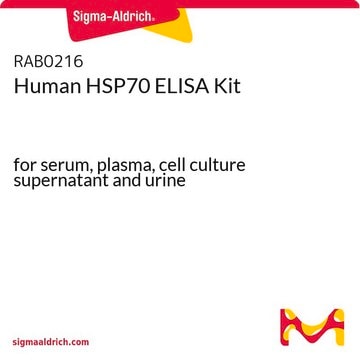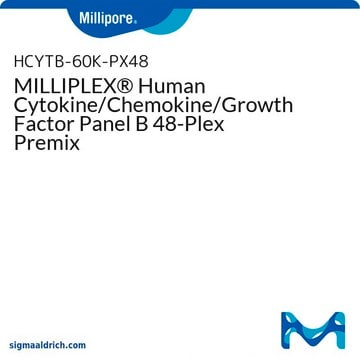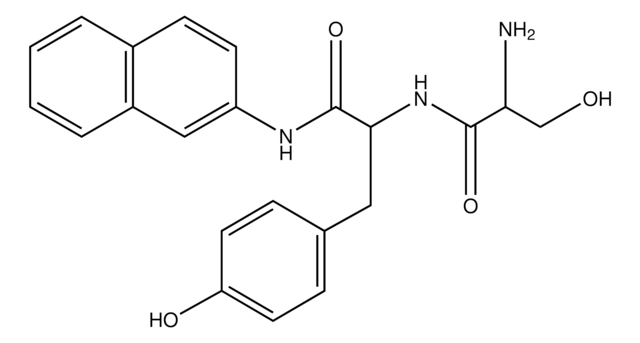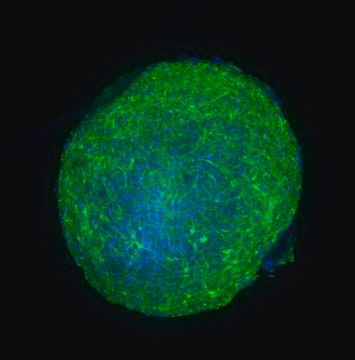H0273
Monoclonal Anti-Heat Shock Protein 25 antibody produced in mouse
clone IAP-28, ascites fluid
About This Item
Productos recomendados
origen biológico
mouse
conjugado
unconjugated
forma del anticuerpo
ascites fluid
tipo de anticuerpo
primary antibodies
clon
IAP-28, monoclonal
mol peso
antigen 25 kDa
contiene
15 mM sodium azide
reactividad de especies
chicken, bovine, frog, rabbit, guinea pig, turkey, Drosophila, mouse, rat, human
técnicas
immunohistochemistry: suitable using frozen sections of chicken gizzard smooth muscle
indirect ELISA: suitable
indirect immunofluorescence: suitable using formalin-fixed, heat-shocked cultured chick embryo fibroblasts
radioimmunoassay: suitable
western blot: 1:500 using turkey gizzard extract
isotipo
IgG1
Nº de acceso UniProt
Condiciones de envío
dry ice
temp. de almacenamiento
−20°C
modificación del objetivo postraduccional
unmodified
Información sobre el gen
human ... HSPB1(3315)
mouse ... Hspb1(15507)
rat ... Hspb1(24471)
Categorías relacionadas
Descripción general
Especificidad
Inmunógeno
Aplicación
- immunoblotting
- enzyme linked immunosorbent assay (ELISA)
- radioimmunoassay (RIA)
- immunocytochemistry
- immunohistofluorescence assay
- immunopurification
Acciones bioquímicas o fisiológicas
Forma física
Almacenamiento y estabilidad
Cláusula de descargo de responsabilidad
¿No encuentra el producto adecuado?
Pruebe nuestro Herramienta de selección de productos.
Código de clase de almacenamiento
10 - Combustible liquids
Clase de riesgo para el agua (WGK)
nwg
Punto de inflamabilidad (°F)
Not applicable
Punto de inflamabilidad (°C)
Not applicable
Elija entre una de las versiones más recientes:
Certificados de análisis (COA)
¿No ve la versión correcta?
Si necesita una versión concreta, puede buscar un certificado específico por el número de lote.
¿Ya tiene este producto?
Encuentre la documentación para los productos que ha comprado recientemente en la Biblioteca de documentos.
Nuestro equipo de científicos tiene experiencia en todas las áreas de investigación: Ciencias de la vida, Ciencia de los materiales, Síntesis química, Cromatografía, Analítica y muchas otras.
Póngase en contacto con el Servicio técnico








